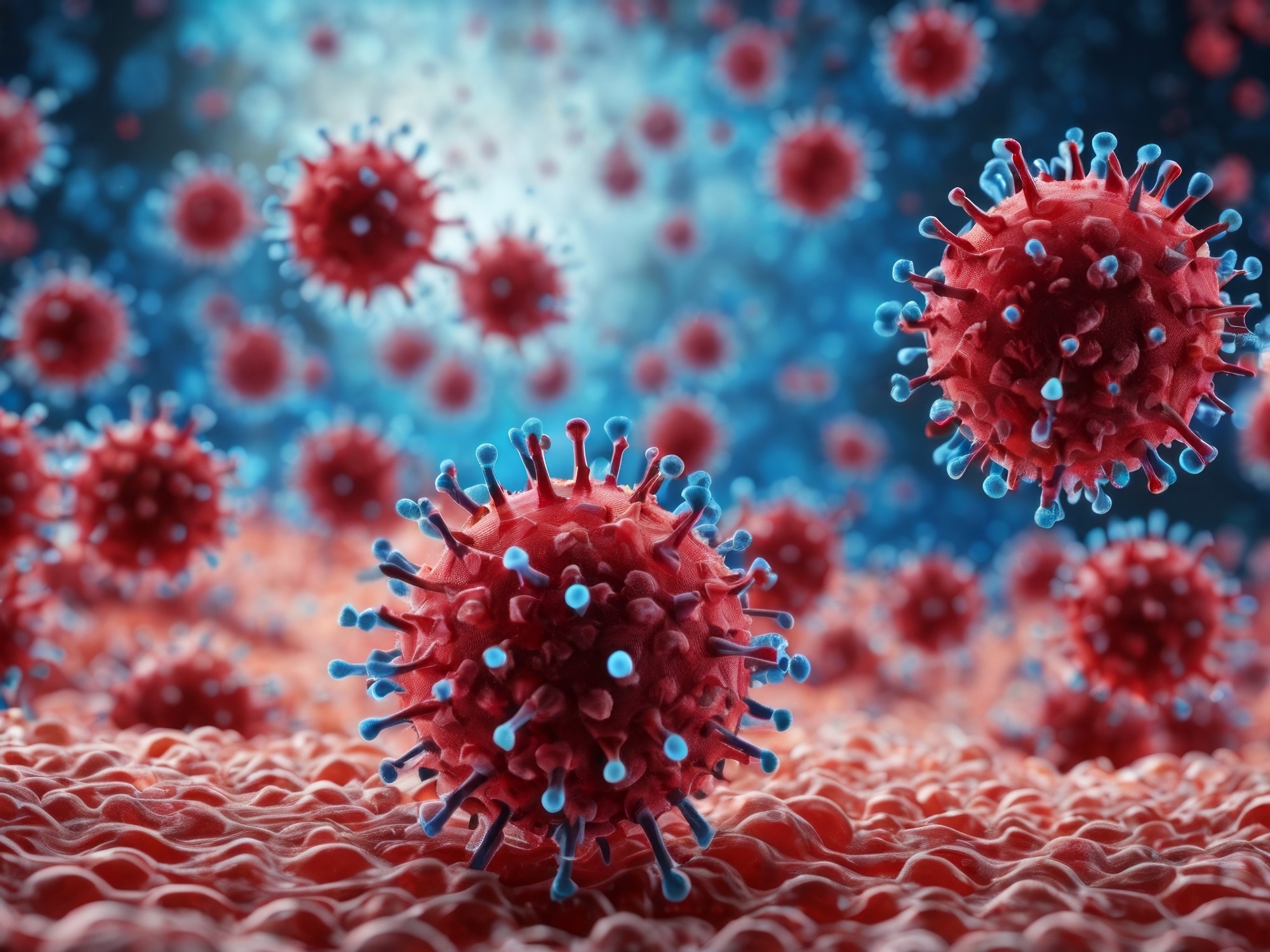New research from Mass General Brigham reveals that COVID-19 infection in pregnancy may subtly alter fetal brain development, heightening the risk of speech, motor, and autism-related disorders in early childhood.

Study: Neurodevelopmental Outcomes of 3-Year-Old Children Exposed to Maternal Severe Acute Respiratory Syndrome Coronavirus 2 (SARS-CoV-2) Infection in Utero. Image Credit: Dagmara_K / Shutterstock
Children born to mothers who had COVID-19 while pregnant face an elevated risk of developmental disorders by age three, including speech delays, autism, motor disorders, and other neurodevelopmental delays, according to new research by investigators at Mass General Brigham. The findings are published in the journal Obstetrics & Gynecology.
COVID-19 May Impact Fetal Brain Development
"These findings highlight that COVID-19, like many other infections in pregnancy, may pose risks not only to the mother but to fetal brain development," said senior author Andrea Edlow, MD, MSc, a Maternal-Fetal Medicine specialist at Mass General Brigham. She emphasized the importance of preventing infections during pregnancy, especially as public trust in vaccines, including COVID-19 vaccines, is facing erosion.
Previous Research Links Maternal Infections to Childhood Neurodevelopmental Disorders
Other maternal infections during pregnancy have been linked with increased risk for a range of neurodevelopmental diseases in childhood. Animal studies have demonstrated that immune activation during pregnancy can disrupt normal fetal brain development and offspring behavior.
Study Design and Population
To assess the impact of SARS-CoV-2 infection during pregnancy, investigators analyzed data on 18,124 live births at Mass General Brigham during the peak COVID-19 period (March 2020–May 2021). The study examined 18,124 mother–child pairs to identify possible links between maternal infection and child neurodevelopmental outcomes.
Elevated Neurodevelopmental Risk After Maternal SARS-CoV-2 Infection
Among the 861 children whose mothers tested positive for SARS-CoV-2 during pregnancy, 140 (16.3%) received a neurodevelopmental diagnosis by age three. In comparison, 1,680 (9.7%) of the 17,263 children born to SARS-CoV-2–negative mothers were diagnosed with such conditions. After accounting for confounding factors, maternal COVID-19 infection was associated with a 29% higher likelihood of a neurodevelopmental condition in children.
Higher Risk Observed in Male Offspring and Third-Trimester Infections
The researchers found that male children were more likely to develop neurodevelopmental disorders than females. The risk was highest when maternal infection occurred during the third trimester, suggesting late-pregnancy exposure may have a greater neurological impact.
Overall Risk Remains Low Despite Elevated Odds
While infection increased the odds of developmental disorders, co-senior author Roy Perlis, MD, MSc, from the Department of Psychiatry at Mass General Brigham, noted that “the overall risk of adverse neurodevelopmental outcomes in exposed children likely remains low.”
Importance of Early Awareness and Parental Advocacy
First author Lydia Shook, MD, also a Maternal-Fetal Medicine specialist, stressed that awareness is key. “By understanding the risks, parents can appropriately advocate for their children to receive proper evaluation and developmental support,” she said.
Study Authors and Institutional Affiliations
In addition to Dr. Edlow, Mass General Brigham co-authors include Lydia L. Shook, Victor Castro, Laura Ibanez-Pintor, and Roy H. Perlis.
Disclosures and Potential Conflicts of Interest
Perlis reports serving on advisory boards for Alkermes, Circular Genomics, and Genomind, with equity in Circular Genomics. He is a paid editor for JAMA and JAMA Network Open. Edlow serves on the scientific advisory board for YourBio Health and consults for Mirvie, Inc. and Merck & Co., Inc. She also receives research funding from Merck, all of which is outside the present work. The authors report no other conflicts of interest.
Source:
Journal reference:
- Shook, Lydia L. MD; Castro, Victor MS; Ibanez-Pintor, Laura MD; Perlis, Roy H. MD, MSc; Edlow, Andrea G. MD, MSc. Neurodevelopmental Outcomes of 3-Year-Old Children Exposed to Maternal Severe Acute Respiratory Syndrome Coronavirus 2 (SARS-CoV-2) Infection in Utero. Obstetrics & Gynecology ():10.1097/AOG.0000000000006112, October 30, 2025. | DOI: 10.1097/AOG.0000000000006112, https://journals.lww.com/greenjournal/abstract/9900/neurodevelopmental_outcomes_of_3_year_old_children.1392.aspx